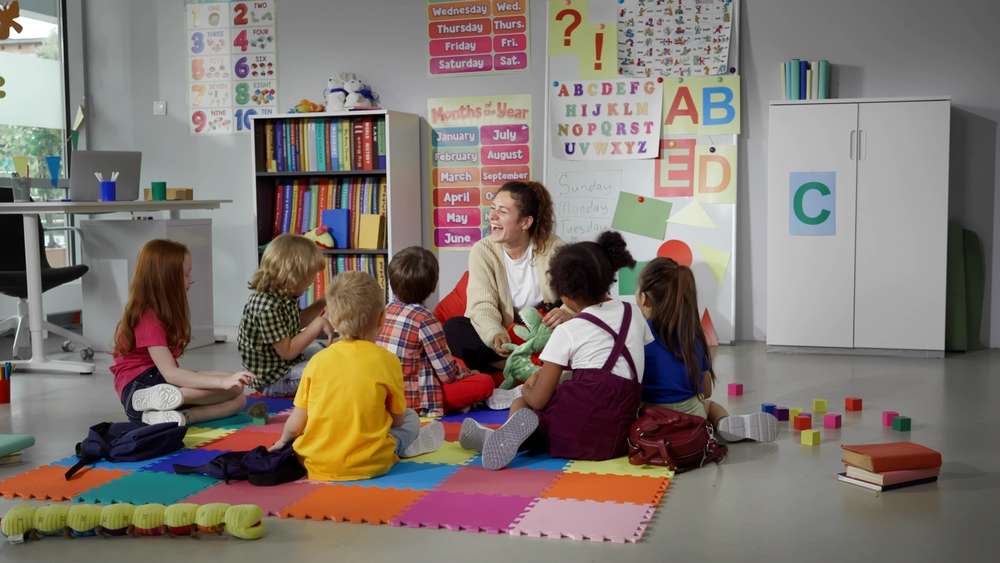Daycare Work in Japan – Roles, Language Considerations, and Workplace Expectations for 2025
Daycare positions in Japan involve child supervision, learning support, and assistance with daily routines. While Japanese proficiency is often expected, some international childcare centers may consider qualified English-speaking candidates with prior experience in early education settings.

Daily Responsibilities in Early Childcare Environments
Working in a Japanese daycare (hoikuen) or preschool (yōchien) involves a structured approach to childcare with distinct responsibilities. Typical daily duties include supervising children during play activities, assisting with meals and snack times, facilitating age-appropriate learning experiences, and maintaining cleanliness of the facility. Staff members often lead circle time activities that incorporate songs, stories, and games designed to promote development across physical, social, emotional, and cognitive domains.
Documentation forms another crucial aspect of the work, with teachers and assistants typically recording daily observations, tracking developmental milestones, and communicating with parents through communication notebooks (renrakucho). In many facilities, particularly those following Montessori or similar methodologies, caregivers prepare educational environments with materials that encourage independent exploration and learning.
Qualifications and Prior Experience Needed for Daycare Work
The Japanese childcare system maintains specific qualification requirements that vary by position level. For assistant positions, a high school diploma may suffice, but lead teacher roles typically require specialized certifications such as the Hoiku-shi (nursery teacher) or Yōchien-kyōyu (kindergarten teacher) license. These credentials involve completing designated coursework at accredited colleges or specialized vocational schools.
International applicants often need to have their credentials evaluated for equivalency, though requirements may be more flexible in international or English-language focused facilities. Prior experience working with children is generally expected, with most employers preferring at least 1-2 years in formal childcare settings. Additionally, many facilities value candidates with specialized skills in areas like music, art, or physical education that can enrich the program curriculum.
Language Use in Bilingual or International Childcare Centers
While traditional Japanese daycare centers operate primarily in Japanese, the growing number of international and bilingual facilities offers environments where English or other languages are integrated into daily operations. These centers typically fall into several categories: fully bilingual programs with equal emphasis on Japanese and English, international schools with primary instruction in English but Japanese cultural components, and Japanese centers with dedicated English activity periods.
Language expectations vary significantly between these types. At fully international schools, native or near-native English proficiency may be sufficient, with basic Japanese skills considered beneficial but not always mandatory. Conversely, bilingual centers often seek staff comfortable in both languages, particularly for lead positions. Even in English-focused roles, basic Japanese communication skills prove valuable for emergency situations, parent interactions, and administrative tasks.
Scheduling Formats and Common Staff-to-Child Ratios
Japanese childcare facilities operate under regulated staff-to-child ratios that vary by children’s ages. Typical ratios include 1:3 for infants under one year, 1:6 for toddlers (1-3 years), and 1:20 for preschoolers (3-5 years). These ratios ensure appropriate supervision while allowing for personalized attention to each child’s needs.
Scheduling for daycare staff typically follows several formats. Full-time positions generally run from 7:30-8:00 AM until 6:00-7:00 PM, though exact hours vary by facility. Many centers also offer part-time positions covering morning or afternoon shifts. Extended-hour facilities serving working parents may operate from as early as 7:00 AM until 8:00 PM, with staff working rotating shifts. Most centers operate year-round with limited holiday closures, differing from the academic calendar followed by public schools.
Salary Expectations and Compensation Packages
Compensation for daycare positions in Japan varies based on qualifications, experience, location, and facility type. The following table provides general salary ranges for different positions in the childcare sector:
| Position | Qualifications | Monthly Salary Range (¥) | Annual Salary Range (¥) |
|---|---|---|---|
| Assistant Teacher | High school diploma | ¥180,000 - ¥220,000 | ¥2,160,000 - ¥2,640,000 |
| Lead Teacher | Hoiku-shi certification | ¥220,000 - ¥300,000 | ¥2,640,000 - ¥3,600,000 |
| English Teacher (International) | Bachelor’s degree, TEFL | ¥250,000 - ¥350,000 | ¥3,000,000 - ¥4,200,000 |
| Daycare Director | Advanced certification + experience | ¥350,000 - ¥500,000 | ¥4,200,000 - ¥6,000,000 |
Prices, rates, or cost estimates mentioned in this article are based on the latest available information but may change over time. Independent research is advised before making financial decisions.
Beyond base salary, many facilities offer benefits such as transportation allowances, housing subsidies (particularly for international hires), health insurance contributions, and paid vacation days. Urban centers like Tokyo and Osaka typically offer higher compensation than rural areas, though living costs are correspondingly higher.
Onboarding, Safety Training, and Role-specific Interview Tips
The onboarding process for Japanese daycare positions typically includes comprehensive safety training covering emergency procedures, child protection protocols, and facility-specific guidelines. New staff members can expect training on proper lifting techniques, food safety measures, and recognition of common childhood illnesses. Many centers implement a mentorship system where experienced teachers guide newcomers through daily routines and administrative procedures.
When interviewing for daycare positions in Japan, candidates should prepare to demonstrate both theoretical knowledge and practical skills. Common interview scenarios include discussing appropriate responses to challenging child behaviors, explaining developmental approaches, and sometimes conducting a sample activity with children. For international applicants, demonstrating cultural sensitivity and willingness to adapt to Japanese workplace norms proves particularly important.
Successful candidates often highlight their understanding of child development principles, showcase previous experience through concrete examples, and express genuine enthusiasm for working with young children. For positions in international or bilingual settings, articulating one’s approach to language acquisition and cultural integration can significantly strengthen an application.
The daycare sector in Japan offers rewarding career opportunities for those passionate about early childhood education. As the field continues evolving to meet changing family needs and educational approaches, professionals who combine solid qualifications with cultural adaptability will find themselves well-positioned for success in this dynamic environment.




